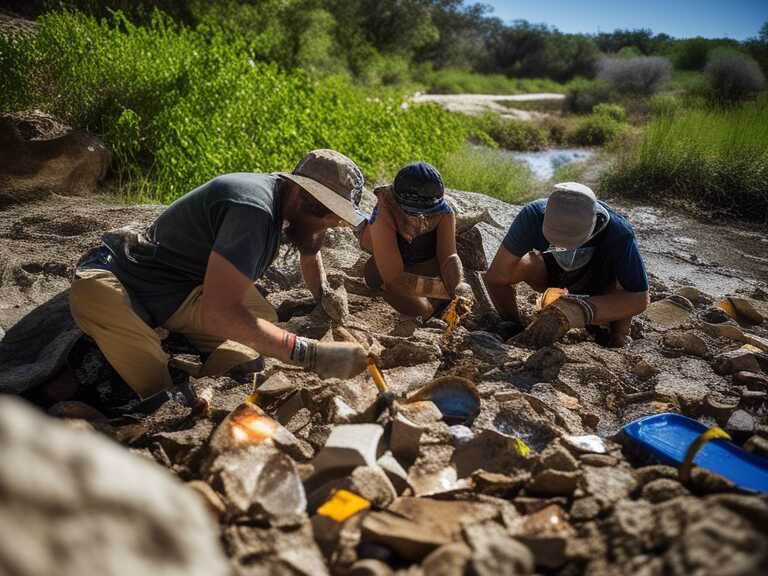
Fossil Hunting Fun: Alabama Kids Unearth 85 Million-Year-Old Treasures
The Alabama Museum of Natural History hosts fossil expeditions at Shark Tooth Creek, where participants can find marine fossils from millions of years ago.

The realm of paleontology holds an undeniable allure, captivating the imaginations of both young and old. From unearthing ancient artifacts to piecing together the history of life on Earth, fossil hunting offers a unique and rewarding experience. The Alabama Museum of Natural History recognizes this fascination and has established educational programs that bring the wonders of paleontology to the public.
One such program involves expeditions to Shark Tooth Creek, a site rich in prehistoric fossils. Participants, ranging from enthusiastic children to seasoned amateur paleontologists, embark on a journey through time as they sift through gravel and clay, searching for remnants of marine life that once thrived in this ancient coastal region.
The Allure of the Past
These expeditions offer more than just the thrill of the hunt. They provide a valuable opportunity to learn about Alabama's geological history and the diverse array of creatures that inhabited its shores millions of years ago. Educational value lies at the heart of these programs, as participants gain firsthand experience with paleontological techniques and develop a deeper appreciation for the Earth's vast and intricate past.
A Shared Experience
The fossil expeditions foster a sense of community among participants, creating shared memories and sparking conversations about the wonders of the natural world. Families bond over their discoveries, while individuals connect through their common interest in paleontology. These programs transcend generations, bridging the gap between the past and present.
Notably, these excursions are meticulously designed to be accessible and engaging for all ages. The abundance of fossils at Shark Tooth Creek ensures that every participant has the chance to make a discovery, fostering a sense of accomplishment and igniting a passion for exploration. This hands-on learning experience leaves a lasting impression, inspiring participants to continue their journey into the world of paleontology.
Beyond educational expeditions, museums play a crucial role in preserving our collective heritage through carefully curated museum collections. These collections house a vast array of artifacts and specimens, providing invaluable insights into past civilizations, ecosystems, and the evolution of life on Earth.
In the case of the Alabama Museum of Natural History, its fossil collection represents a treasure trove of ancient history, offering a glimpse into the rich biodiversity that once flourished in the region. Each fossil tells a story, revealing details about the creatures that inhabited Alabama millions of years ago and providing clues about the dynamic forces that shaped our planet.
These collections are not merely static displays; they serve as vital resources for researchers, educators, and the general public. Through careful documentation, analysis, and exhibition, museums make these treasures accessible to a wider audience, fostering a deeper understanding and appreciation of the natural world.
Furthermore, museums actively engage in research and conservation efforts, striving to protect fragile artifacts and ensure their preservation for future generations. By bridging the gap between the past and present, museums play an essential role in safeguarding our shared history and inspiring wonder about the complexities of the universe.
Share news















